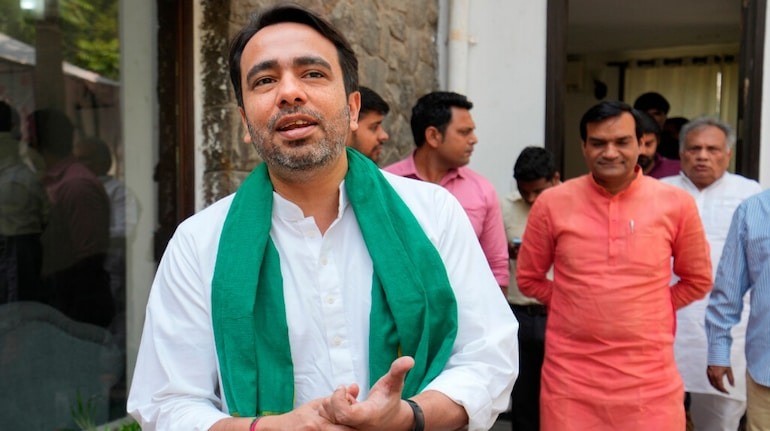
In preparation for Eid-ul-Fitr, police across Uttar Pradesh have issued directives preventing Muslims from offering namaz on roads and in public spaces. The orders, aimed at maintaining public order, have prompted criticism from various quarters, including Union Minister of State and Rashtriya Lok Dal (RLD) chief Jayant Chaudhary.
Meerut Police Warns of Legal Consequences
In Meerut district, police warned that individuals found offering namaz on streets may face criminal charges, with further consequences including cancellation of driving licenses and passports. A list of eight violators from last year was submitted to the District Magistrate, and steps have been initiated to revoke their official documents.
SP Ayush Vikram Singh of Meerut City stated:
"We have instructed that prayers must only be offered in mosques or Idgahs. Under no condition will roads be used for namaz."
Jayant Chaudhary Labels Orders 'Orwellian'
Responding to a news report on the directive, Jayant Chaudhary referenced George Orwell’s novel Nineteen Eighty-Four, suggesting that the state’s policing mirrored authoritarian practices. Posting on X, he wrote:
"Policing towards Orwellian 1984!"
Policing towards Orwellian 1984!https://t.co/OYimvwqiF7
Chaudhary, a partner in the BJP-led NDA, criticized the move despite his party alliance, highlighting growing concerns over religious freedom and civil liberties.
Similar Orders Across UP Districts
Other districts have followed suit:
Sambhal: Police warned that no public namaz or collective prayers in homes would be allowed.
“People can offer prayers at home, but they must avoid causing any public disturbance,” said SP Krishan Kumar Bishnoi.
Aligarh: No formal ban was issued, but the administration reiterated adherence to a government advisory banning public prayers. Peace committee meetings were held to communicate the guidelines.
Hathras: SP Chiranjeev Nath Sinha confirmed no community would be allowed to offer prayers in public areas, emphasizing that all religious events should be celebrated within private spaces.
Ghaziabad: Authorities indicated flexible arrangements to manage crowding, including staggered prayer timings.
“Surveillance via drones and police presence will ensure security,” stated DCP Dasarath Nimish Patil.
Statewide Surveillance and Crowd Control Measures
Security arrangements have been intensified in sensitive areas, with drones and additional police deployed around mosques and Idgahs. The measures are part of a broader effort to prevent communal tension during the festival season.

 Share
Share



